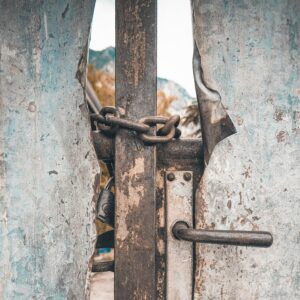Sharmen's Videos

1:49

7:31

6:27

8:08

5:25

1:05:57

5:58

10:57

40:29

48:45

54:39

The Deep Human Need to Be Seen and Known in a Culture of Sensationalism
We live in a world buzzing with noise—endless content, relentless stimulation, and a constant invitation to look everywhere but inward. We’re drawn to the spectacular because it momentarily wakes something deep inside us: our longing to feel significant, to feel connected, to feel seen. But beneath the pull of sensationalism lies a much older truth—one woven into the fabric of our being by the God who formed us. When we pause long enough to look past the noise and tune into the One who knows us fully, we begin to uncover the steadiness, identity, and divine design that no amount of scrolling can touch.

Embarking on a Healing Journey: Three Essential Steps
If you’ve ever said, “I don’t know who I am anymore,” or wondered how to feel normal again after surviving chaos, confusion, and loss in your relationships, this post is for you. Discover three powerful steps to reclaim your identity, protect your soul, and start healing—whether the relationship improves or not.

Broken Identity: Trauma as an Attachment Wound
Trauma isn’t just a wound—it’s a sneaky saboteur of our deepest connections. Dive into how attachment injuries shape our lives and discover the gutsy path to healing through love and vulnerability.

The Art of Soul-Care: Embracing Self-Care and Vibrant Authenticity
When you dismiss your needs, mute your longings, or diminish your gifts, you erode the very foundation of your being. This isn’t about fleeting exhaustion—it’s about a soul losing its bearings. Without self-care, your love for others becomes a fragile thread, stretched to breaking, unable to hold the weight of authenticity.

The Demand of Forgiveness
Forgiveness isn’t their redemption—it’s yours. Explore why demanded forgiveness fails and how real change, not grace, heals broken bonds.

Thoughts about Resilience
Resilience isn’t just about bouncing back—it’s about creatively transforming challenges into something meaningful. True resilience requires engaging with what you have, thinking outside the box, and building something valuable from life’s setbacks. Whether in relationships, personal growth, or life transitions, resilience empowers you to move forward with intention. Discover how to cultivate resilience in a way that brings purpose and possibility to your journey.

Do You Have Any Red Flags?
This title is a bit of a trick question. We’re taught to be wary of others, which assumes our “safety” depends on our ability to correctly discern others’ meaning and motives. That is part of the equation, yes. But, it sets us up to live in suspicion and fear.

Healing from Crazy-Making
If you’ve found your way here, it’s likely that you’re feeling discouraged, angry, or just plain exhausted. Maybe you’re tired of being used or walked over. Perhaps you’re feeling lonely, scared, or unsure of your own instincts. You might even be questioning your sanity. Whether you’re desperately flailing or simply in need of better grounding, you’re not alone.

Recovering Your Identity After Escaping Codependency and Abuse
We cannot get through life unscathed by trauma. Yet, we often let trauma dominate our lives through denial, avoidance, fear, or naivete. Undealt with, trauma isolates us and leads to self-protection, manifesting as codependence or narcissism. Both extremes involve hiding oneself to manage the world around them. As natural nurturers, most women tend to lean toward codependency.

Healing and Wholeness after Escaping Abuse
You cannot live (or love) well if you are not well. Your journey to healing begins with finding your own footing to think, speak, act, and live authentically no matter who agrees.

Narcissistic Victim Syndrome: Recovery
In this part of our series on Narcissistic Victim Syndrome, we focus on recovery. Standard, run-of-the-mill approaches are potentially dangerous for couples stuck in power and control cycles. As coaches and counselors, we must protect the victim from further harm and work to potentially bring them to a place of collaboration. The dominating partner must become connection-oriented before collaboration can occur. Which means that couples work is not the first step.

Narcissistic Victim Syndrome: Overview
Our working definition of emotional abuse is that it is an ongoing pattern of selfish, destructive behaviors used to gain and maintain control over their spouse for one’s own benefit at the expense of their spouse. Underlying this pattern of behavior is a strong sense of entitlement to use others regardless of the cost to them. Narcissistic, emotional abuse eventually culminates in a very complicated case of un-health. The soul-crushing experience of being dismissed, unheard and unseen, belittled, and silenced culminates in becoming a dead (wo)man walking.

Hostage to The Misplaced Responsibility
I’m going to make a statement that might initially cause a strong reaction in you, but please hear me out. Ultimately, my goal is to find that precious, sacred, powerful point at which we become intentional about living, even in the midst of a destructive, stifling world. It is at that point where we have the God-given agency to make a choice about our next step, and about who we are and how we are showing up. The hardest question to answer is: How?

What is your bias?
Another nuance impacting attachment is confirmation bias. This might seem a bit random in the context of trauma, but there is a strong correlation between confirmation bias and resistance to change, thus resistance to healing. What we’ve deeply learned, both intrinsically and extrinsically, determines what we seek, expect, and perceive. When there is a gap in our understanding, we fill it in with our own narrative based upon previous learning. Most often we fill in those blanks with negativity and suspicion. Trauma teaches us what to watch for, what to expect, and how to perceive it.

Attachment has a Role
There is a curious power to attachment theory and the role it plays in complicating trauma. I believe attachment issues underlie every psychological disorder and diagnosis. In my intro above, I started to write “…the role of attachment on psychological health.” But, it goes much deeper than that. I think it has a role is every aspect of our health – biological, psychological, sociological, spiritual, and relational.

Trauma-informed Living
o one gets through life unscathed by harm and trauma. We live in a world that is marred and broken. Nothing is truly as it has been written upon our hearts to be. At every step, we have learned. Something that distinguishes us from the rest of creation is the ability to project our learning to determine our next steps, to create, plan, and build our future. As we mature, what we’ve learned through extrinsic memory (those things we had to pay attention to and concentrate on to learn) tends to become aligned with our interests, curiosities, and passions. We pay attention to what is relevant, those things we believe will be useful and helpful and successful for us.

His New Nickname
We get stuck in loops trying to figure out why our spouse (or any other significant other) does what they do to us. It’s as if we understood the intent, it could excuse the pain or angst we feel toward them. Or, we turn it all inward and ask ourselves, “What’s wrong with ME?”
Maybe if we could figure out why he does what he does, we could also figure out how to better avoid it. Or fix it. Or be able to get him to change because we could explain it and connect all the dots to make sense for him why it would be so easy to change and do differently.

Random Thoughts About Submission
Submission that is demanded ceases to be submission and has instead become servitude. Love that is demanded ceases to be love. At that point, it simply becomes obedience. Obligation. No longer a free choice of the free will. The demand destroys the essence of what it was meant to be. And the soul shrivels up. It’s the same idea as being submitted to God. God doesn’t demand it, but let’s it be a matter of choice. The choice is what makes it meaningful.

Is This Change For Real?
When things have gotten dire enough to seek help, it’s often hard to know what to count on from your spouse regarding the future of your relationship. You desperately want to plant your feet into something solid and reliable. Therefore, it makes complete sense that you’d want to know if the changes being made are “real.” So, how can you tell?

Rightfully Angry
For both men and women, anger is a key building block in their wall of self-protection. It supports defense mechanisms and fuels the façades we wear. Anger can make it very difficult to be authentic and connect to your spouse. The only connection that can happen is to whatever is in front of your shield of self-protection, which is often a very shallow, non-vulnerable self. In being self-protective, you disable the very thing your heart craves: authentic connection.

Staying Intentional When Your Spouse Walks Out
I think what I hear between the lines is the struggle between what you “should” do based on your Christian background and what your gut is telling you to do to protect yourself from being further hurt and move on with your life.

Chemistry is Not Connection
We enter relationships attracted by something—a look, a personality, a desire, an intrigue—without the skills to maturely relate. And without those skills and perspective, the chemistry easily explodes into chaos, confusion, and loneliness.

Healing Together
It is common for couples to remain in a relationship even when emotional abuse has been part of the picture. Even when the pressure of staying together is removed, she may still choose to stay for multiple layers of valid reasons. We need to create a road map to help them move toward healing together or, at least, help her detach from the abuse with good boundaries, strong character, and a safety plan to stay well.

Abuse as Misplaced Responsibility
Many of my clients start their story by saying, “It has taken me way too long to get the courage to speak up about this. I am so ashamed of letting myself stay in this abuse for so long!” They often feel a sense of misplaced responsibility, thinking they could have have seen and stopped it. Or that they should have been better, sexier, more fun, a better housekeeper, more submissive, more respectful. They often believe that if they were just less selfish, they could have made him happy. “If I had just done it differently, I could have figured this out and fixed it.”
